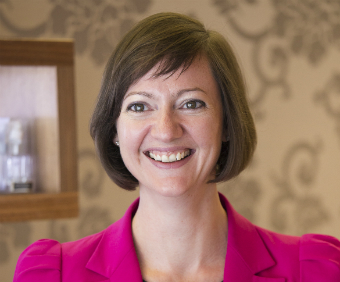Expert View: Leap of faith

Expert View: Leap of faith
Opening your own spa can be both exciting and nerve-racking. Pure Spa & Beauty founder Becky Woodhouse shares her start-up expertise with aspiring business owners
Many people dream of opening up their own spa but it can also seem daunting. However, a good starting point is the fact that all businesses have two fundamental elements in common; you need to generate cash and you need to make a profit.
Which means you first of all have to work out if your business idea is likely to be profitable. The easiest way to do this is to go back to basics and ask yourself three key questions:
- Who am I selling to (i.e, who are your customers)?
- What am I selling (for a spa this is likely to be treatment time, facilities, retail products, etc)?
- What does it cost to provide what I’m selling (you need to be very clear on this and factor in all costs, including your own salary)?
Once you know the answers, you should be able to work out how much you need to sell, and at what price, to generate a profit.
Plan of action
It’s important to know what your breakeven spa occupancy is: i.e. how many treatment hours you need to sell at your average price to cover your fixed costs and start making a profit. You can then work out how many customers you’ll need to fill your breakeven spa occupancy hours and if this seem achievable based on the size of your target customer base.
Look at what your start-up costs will be and watch out for hidden expenses such as staff training and opening stock, which can eat up your budget very quickly. You also need to work out how you’re going to fund the business; are you investing your own money or getting a bank loan? If you’re getting a loan, the first thing they’ll ask you for is a business plan.
I would recommend investing in a qualified accountant to write your plan, or at least check the plan once you’ve written it. You can download template business plans and financial projection templates online but these are only as good as the effort that’s gone into creating them.
I have written many business plans over the years and I would say a good one will take you a few weeks to draft, review, get feedback on, re-draft, and so on. It’sdefinitely worthwhile,however, because it forces y ou to address every aspect of the business, from sales, marketing and cost planning, to staffing, management structure and financials.
ou to address every aspect of the business, from sales, marketing and cost planning, to staffing, management structure and financials.
Joined up efforts
I would encourage anyone starting a business to get as much free help as they can. There are lots of people and resources that can assist you. My suggestions would be:
- Join your local spa association and start networking with other spa owners and operators. People are generally happy to help if you have any issues and it’s great to get advice from someone in a similar position.
- Get government support. Most governments offer help to people starting a business so it’s worth looking at the resources that may be available to you.
- Join your local business group. There are tonnes of business groups out there (such as the Federation of Small Businesses and the British Chambers of Commerce in the UK) and being a member of one will give you access to a whole network of advice. They often also run useful short courses and host events that are not too expensive.
- Look at mentoring. I would recommend finding a mentor who can help guide you in the early days: it allows you to have in-depth conversations with a person who can really help you grow your business.
- Become a member of LinkedIn groups related to your sector. They can be very useful sources of knowledge and information.
The why factor
The final and possibly most important point to consider if you’re thinking of opening your own spa is why you’re doing it. Starting a business is not for the fainthearted; it’s high-risk and comes with long working hours, plus you have final responsibility. Which means that when something goes wrong, you’ll have to roll your sleeves up and resolve it. There is no one else.
However, it also comes with lots of benefits, such as work flexibility, not having to answer to anyone else and higher rewards if you’re successful. But you need to be resilient, tenacious and committed, and not take things too personally (which is harder than you’d think). You also have to accept that the business will consume pretty much your every waking hour.
 I have yet to meet a business owner who can switch off completely and not think about their business, even when they’re on holiday.
I have yet to meet a business owner who can switch off completely and not think about their business, even when they’re on holiday.
However, the satisfaction of knowing you’re creating something new and providing jobs, and of having loyal customers and staff who believe in you and share your vision is an experience like no other. That’s when you feel like you have the best job in the world.
 Woodhouse is chief executive of Pure Spa & Beauty, which offers beauty and spa treatments in six locations across Scotland. Woodhouse, who set up the award winning business in 2001, has a background as a chartered accountant and previously worked for PricewaterhouseCoopers.
Woodhouse is chief executive of Pure Spa & Beauty, which offers beauty and spa treatments in six locations across Scotland. Woodhouse, who set up the award winning business in 2001, has a background as a chartered accountant and previously worked for PricewaterhouseCoopers.
purespauk.com

